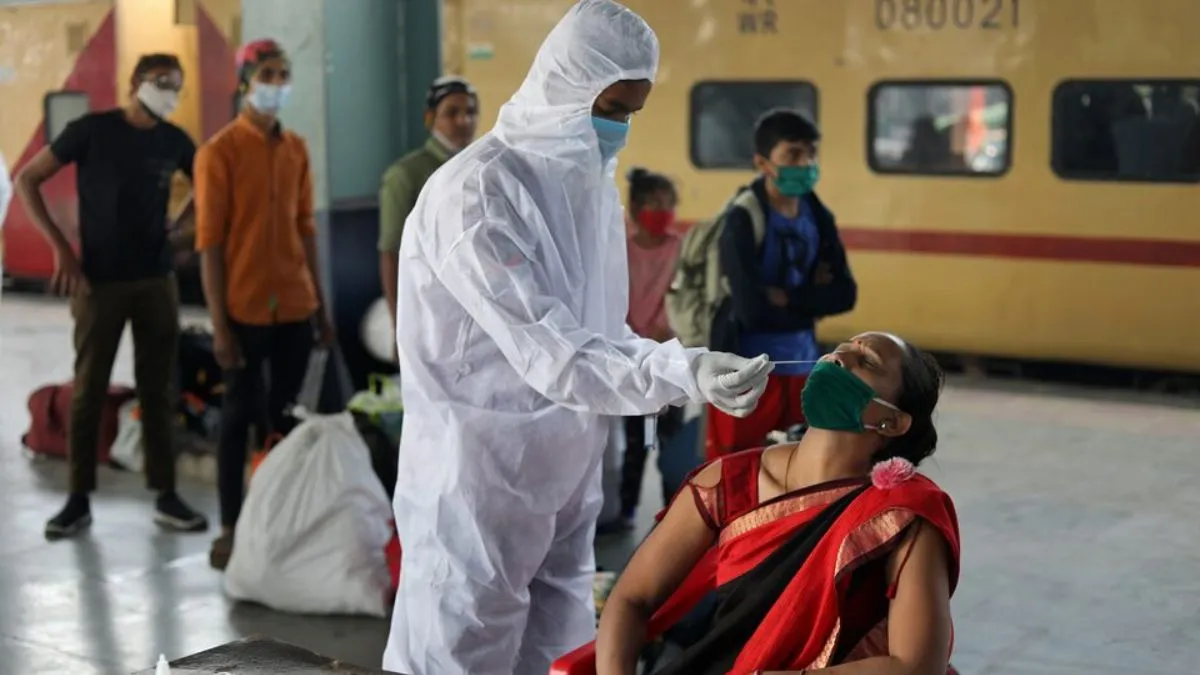- By Supratik Das
- Tue, 20 May 2025 02:49 PM (IST)
- Source:JND
A fresh spike in COVID-19 cases across major Asian nations such as Singapore, Hong Kong, Thailand, and China has triggered regional health alerts, with officials exhorting citizens to remain cautious. This sudden spike is linked to the highly transmissible JN.1 variant, a sub-lineage of Omicron, though so far there is no evidence that the variant results in more serious illness.
The current wave of the spread of JN.1 variant and its similar variants, such as LF.7 and NB.1.8, all come under the Omicron family. The World Health Organization (WHO) has designated JN.1 as a "variant of interest," meaning close surveillance but not heightened alert. Factors like immunity, partying after festivals, and rising mobility are also the reasons for the surge.
Country-Wise Covid Situation
Singapore:
• New cases jumped to 14,200 from 11,100 within a week (April-end to May 3).
• Hospitalisations increased by 30 per cent.
• There was no new restriction announced, but the government has resumed weekly updates after a year-long pause.
Hong Kong:
• 1,042 new cases registered in the week up to May 10.
• Positivity rate for respiratory samples hit 11.4 per cent, marking the highest level in a year.
• 31 COVID deaths and 81 severe infections reported, mostly elderly with co-morbidities.
Thailand:
• Weekly cases reached 33,030, up from 16,000 the previous week.
• Highest counts in Bangkok, Chon Buri, Rayong, and Nonthaburi.
• Burst after the Songkran festival in April. Booster shots are being suggested.
China:
• Positivity rate among outpatient influenza-like illness cases went from 7.5 per cent to 16.2 per cent.
• Hospitalised cases also rose from 3.3 per cent to 6.3 per cent.
• Experts caution against a wave like last year.
India Keeps a Watch, No Outbreak So Far
India has seen a slight rise in active cases of COVID-19, with 257 active cases countrywide as of now, according to the Health Ministry. Though there is no outbreak reported, surveillance has been intensified, particularly at international airports.
Should Indian Travellers Be Concerned?
No official travel advisory or ban has been issued yet by the Indian government or any of the affected nations. But elderly people, children, and People with chronic illnesses such as cancer, diabetes, or heart disease are advised to avoid these nations.
Safety Measures for Travellers
• Wear a well-fitted mask in crowded areas
• Wash hands frequently or use alcohol-based sanitiser
• Avoid close contact with people showing symptoms
• Get a booster dose before departure, especially if you’re in a high-risk zone.
As per local health officials, the majority of new cases are still mild, and hospitalised severe cases still remain in control. But with the sudden acceleration of the JN.1 variant, caution and prompt measures are essential. Indian travelers are currently recommended to stay updated with official health reports, verify destination-based advisories before travelling abroad.

